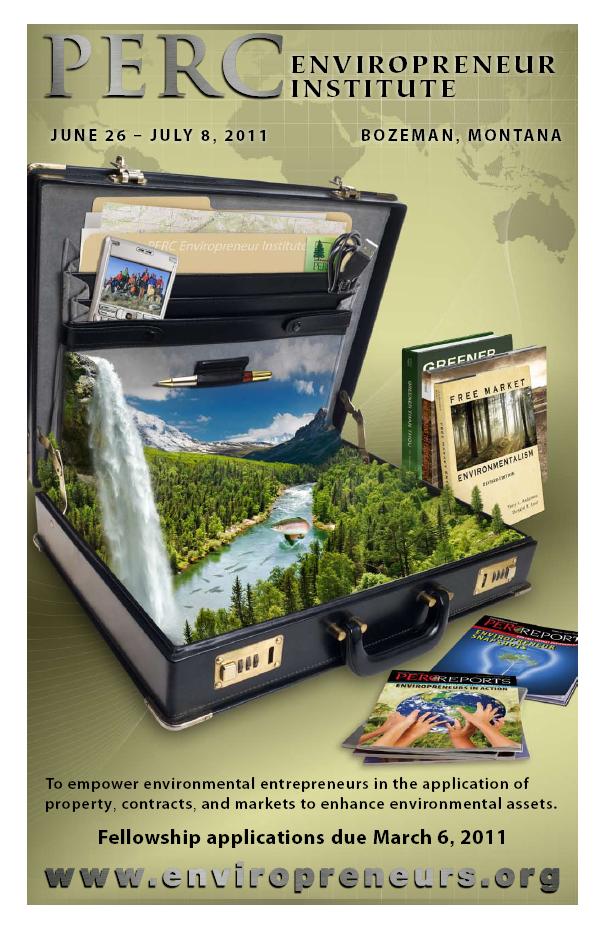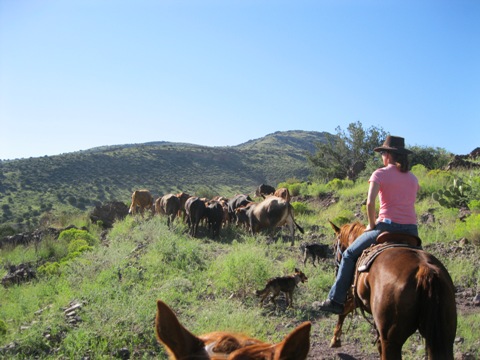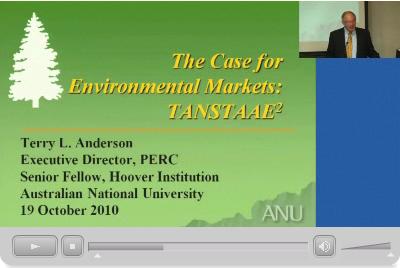Find out more information on the program’s website. Applications are due March 6, 2011.
Author Archives: shawnregan
Safe Food At Any Cost
Paul Schwennesen recently appeared on Fox Business to discuss food safety. Paul offers more comments on the issue below.
We all want safe food. Question is, how do we get it? “There oughta be a law,” seems to be the generally conceived approach, as evidenced by recent passage of the now-famous food safety bill. A tidy and altogether comforting solution: simply slay the beast of dangerous food with the bludgeon of enlightened bureaucracy. But for the food advocates who support this kind of top-down solution, beware. The kind of government meddling that created cheap-at-any-cost is now about to do the same for “safe” food.
But isn’t food safety a pressing concern, a public health problem we can’t afford to fool around with? The problem is, the problem isn’t. Emotional rants that “thousands die every year!” do not help us grapple with the scope or magnitude of this alleged threat. Let’s try some perspective: according to the Centers for Disease Control, the estimated number of deaths caused by food borne illness numbers around five thousand a year. Sounds pretty bad, eh? Time to call in the Salmonella SWAT team? Before you do, consider that the same number of people die by intentionally strangling themselves each year. Or that the same number of people die from Alzheimer’s in California alone each year. Or that four times that number die each year accidentally falling off of things. Moreover, 70% of food borne illnesses result from poor food handling procedures during preparation. Unless you’re also on a crusade to flatten everything or cure Alzheimer’s, I’d think twice about ceding greater authority of our food system to centralized management.
True to form, Congress has blithely offered its professional problem-solving services to rid us of the menace of deadly food. And, true to form, it’s about to embark on another unarmed expedition into the tortuous territory of unintended consequences.
McCormick on the Offshore Drilling Moratorium
PERC senior fellow Bobby McCormick appeared on Florida’s WUSF 89.7 today to discuss the White House’s new ban on offshore drilling on the Atlantic coast and eastern Gulf of Mexico. Listen here (McCormick appears around 2:35):
New Food Safety Regulations Will Limit Food Choices
by Sarah Schwennesen

Those in support of this bill declare that they seek the safest food for all Americans, while the skeptic points out that industrial food producers are feeling the squeeze by farmers markets/Community Supported Agriculture (CSA) shares and hope to quash this threat through regulation. Direct, local food sales were a fringe of the overall food market just a few years ago, but sales are up, some even say 105% in the past decade – double the rate of growth of overall agricultural sales. So it’s reasonable to contend that the ‘industrialists’ are feeling the squeeze.
I believe that S. 510 is simply a turf battle for who gets your food dollars. While small agricultural producers competed with the industrialists through local networks and personal presence (in contrast to shiny wrapping and sterile stores), the industrialists have brought the game back to their turf in order to exploit their home field advantage of capital reserves, lobbyists, established government networks, and economies of scale that will be only slightly impacted by the new regulations of S. 510.
To ameliorate these concerns, a proposed Tester–Hagan amendment would exempt small producers (defined as those that make under a certain amount of money, and that earn at least 50 percent of their revenue from direct-to-consumer sales like farmers markets or CSAs) from some of the bill’s requirements.
However, this amendment has come under attack by the ‘industry lobbyists’ who demand that all food should comply with the same regulations. I tend to agree with this line of thinking, though in a dissimilar manner. All food should be treated the same way; it should be unregulated. People should be free to make their food choices unimpeded by government regulations which are never a one-size-fits-all solution to perceived problems.
If people desire sterile food, then they can buy from industrial operations which will devise ways of “third party accreditation for safety and quality.” But if people crave ugly tomatoes with out-of-this-world taste, raw milk, eggs directly from the chicken’s nest, and meat from their local butcher, then they ought to have the right to make these purchases with their monies.
Yes, I grant that food safety is important, and our nation’s food safety is second to none—but that is in spite of limiting the food choices that people have, not because of it.
PERC Talks: Two New Lectures
Here are the latest lectures from PERC scholars. 1. Bruce Yandle – “Bootleggers, Baptists, and the Government Habit” [vimeo 16505920] Senior fellow Bruce Yandle discusses government regulation and his Bootleggers and Baptist theory with the Nassau Institute last month. See the larger version here. 2. Terry Anderson – “The Case for Environmental Markets – TANSTAAE²”Continue reading “PERC Talks: Two New Lectures”
New in PERC Reports: The Accidental Environmentalist
by Holly Fretwell “That is spectacular!” “Who owns this?” “Check out the wide-open space!” These were comments made this summer by participants of the PERC/Liberty Fund cosponsored colloquium on Free Market Environmentalism. The annual program offers 25 undergraduate students the opportunity to explore how property rights and markets can help improve environmental quality. To bringContinue reading “New in PERC Reports: The Accidental Environmentalist”
Designing Payments for Ecosystem Services
The latest PERC Policy Series by James Salzman brings attention to a rapidly developing phenomenon—payments for ecosystem services (PES). Salzman, the Samuel F. Mordecai Professor of Law and the Nicholas Institute Professor of Environmental Policy at Duke University, explains when and where ecosystem services can be provided by voluntary markets rather than government actions. TheContinue reading “Designing Payments for Ecosystem Services”
New in PERC Reports: Property Rights to Surf Breaks
by Daniel K. Benjamin In open-access settings, high quality resources are lucrative; yet keeping out potential entrants may be extremely costly. This combination—valuable resources in the presence of high exclusion costs—has played a pivotal role in creating the “race to fish” and a consequent destruction of many of the world’s fisheries. Yet private interests haveContinue reading “New in PERC Reports: Property Rights to Surf Breaks”
How Food Regulations are Harming Local Food
Paul Schwennesen appeared on the Fox Business Network yesterday to discuss how food regulations harm local producers and favor large conglomerates. Paul is an Enviropreneur Institute alum and raises grass-fed beef at the Double Check Ranch in Arizona. UPDATE: Paul comments further at Agrarian Liberty.
New in PERC Reports: Moving the Wind
by Jonathan Fahey Montana is a big, beautiful playground for the wind. It howls down the eastern edge of the Rocky Mountains from the north and west, and flies south and east across the empty plains of the eastern part of the state. But that Montana wind turns just 375 megawatts worth of wind turbines.Continue reading “New in PERC Reports: Moving the Wind”



